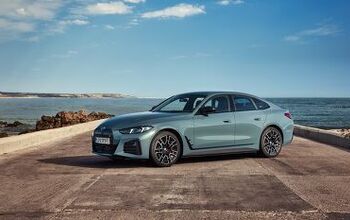These Are the Most Reliable Cars in Each Category, Says J.D. Power
Recent findings from J.D. Power show that after three years of ownership, vehicle dependability has diminished. Owners are reporting more problems compared to the previous year, with the industry average escalating to 190 problems per 100 vehicles (PP100). The disparity in problem rates between the initial 90 days and three years of ownership has surged, indicating a notable decrease in vehicle dependability over time.
Electrified Vehicles: A Mixed Bag
Owners of BEVs and PHEVs report more problems than those with gasoline and hybrid vehicles, with tire replacement being a notable issue for BEV owners.
Segment-by-Segment Breakdown
The study lists the most reliable vehicles across different categories, with Toyota Motor Corporation achieving the most segment awards. Here is an organized summary of the top-ranking models:
Compact and Midsize Cars:
Compact Cars:
- Toyota Corolla
- Honda Civic
- Toyota Prius
Compact Premium Cars:
- Lexus IS
- BMW 4 Series
- BMW 3 Series
Midsize Cars:
- Toyota Camry
- Chevrolet Malibu
- Hyundai Sonata
Midsize Premium Cars:
- Lexus ES
Premium Sporty Cars:
- Porsche 718
- Chevrolet Corvette
Pickup and Van Segments:
Large Heavy Duty Pickups:
- Ford Super Duty
- GMC Sierra HD
- Chevrolet Silverado HD
Large Light Duty Pickups:
- Toyota Tundra
- GMC Sierra
- Chevrolet Silverado
Midsize Pickups:
- Toyota Tacoma
- Chevrolet Colorado
- Ford Ranger
Minivans:
- Kia Sedona
- Toyota Sienna
- Honda Odyssey
Standout Brands
Lexus is recognized as the most reliable brand overall, followed by Porsche and BMW for premium brands. In the mass market, Toyota ranks highest with Buick and Chevrolet in a close contest for reliability.
Methodology of the Study
The study reflects the experiences of over 30,000 owners of 2021 model-year vehicles after three years. It encompasses 184 problem areas across nine vehicle categories to provide a detailed analysis of long-term vehicle reliability.
This article was co-written using AI and was then heavily edited and optimized by our editorial team.
More by TTAC Staff
Latest Car Reviews
Read moreLatest Product Reviews
Read moreRecent Comments
- Bkojote Hi, actual city planner here. Congestion pricing In NYC? Yes. Hell yes. Absolutely hell yes. Like empirically we've already got proof the answer is yes, there's not even a discussion about this anymore, the Robert Moses experiment is 50+ years old. We might as well be arguing if the earth is flat. Now build the freaking rail link from LGA airport I don't want to be inhaling car freshener fumes from my crappy Uber.
- MaintenanceCosts In big cities, there's just not enough space for everyone to drive a car. That's just geometrical reality and you can't change it. So you have to allocate the street space in one way or another. Right now, it's allocated to those who are the most willing to wait in congestion, and they pay the price for the street space in their time. Under congestion pricing, it's allocated to those who are most willing to pay for it in money. (And there is a lot more capacity overall given the lack of gridlock.) If you have a better way to allocate it than either of the above, every city planner is all ears.
- Ajla Maybe, but with them being unpopular at a macro level I doubt you'll be seeing them in the US. If this couldn't get over the finish line in New York then good luck in other places. I think urban planning advocates really need to focus on nonpunitive ideas going forward. "Let's make driving more sh*tty and/or expensive" just isn't going to find a broad audience.
- Oberkanone I want to see knobs for volume control and tuning.
- 28-Cars-Later Nope, but we're getting close again to the time of heads on pikes.

































Comments
Join the conversation